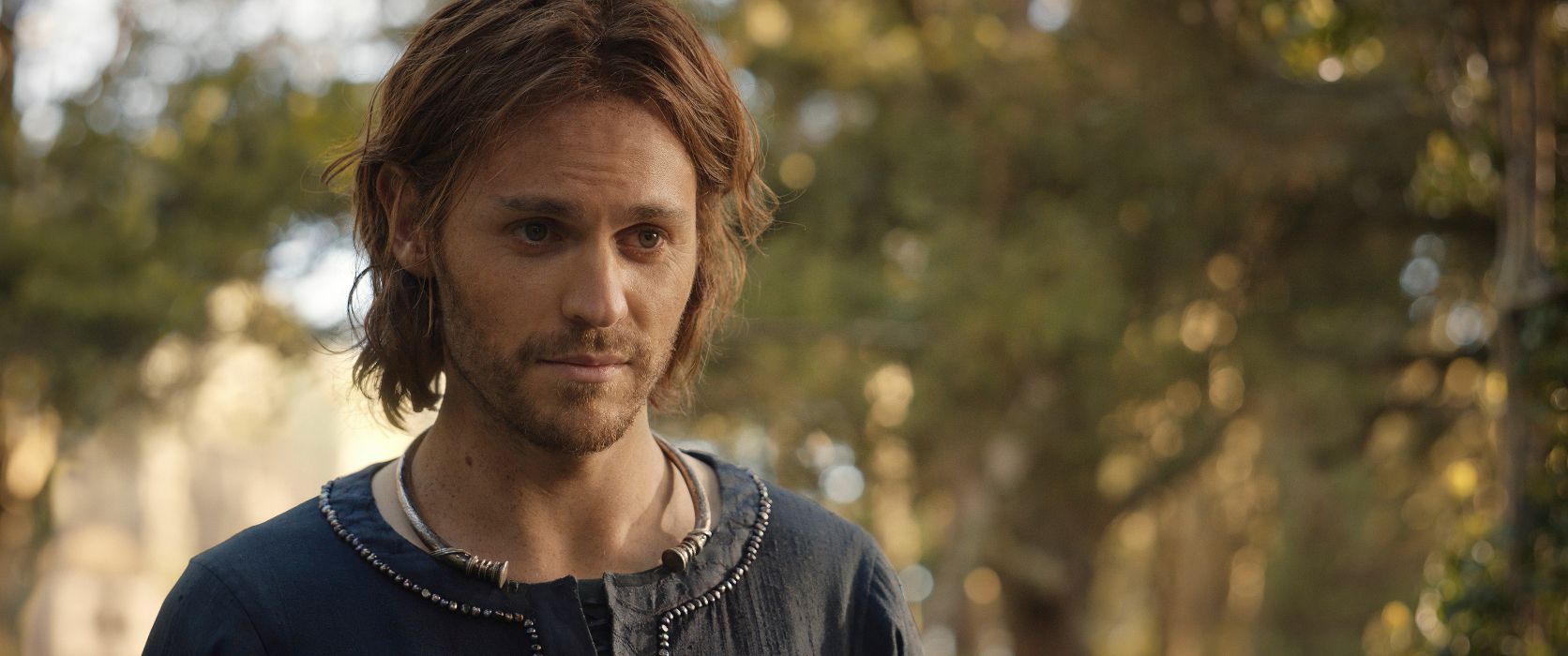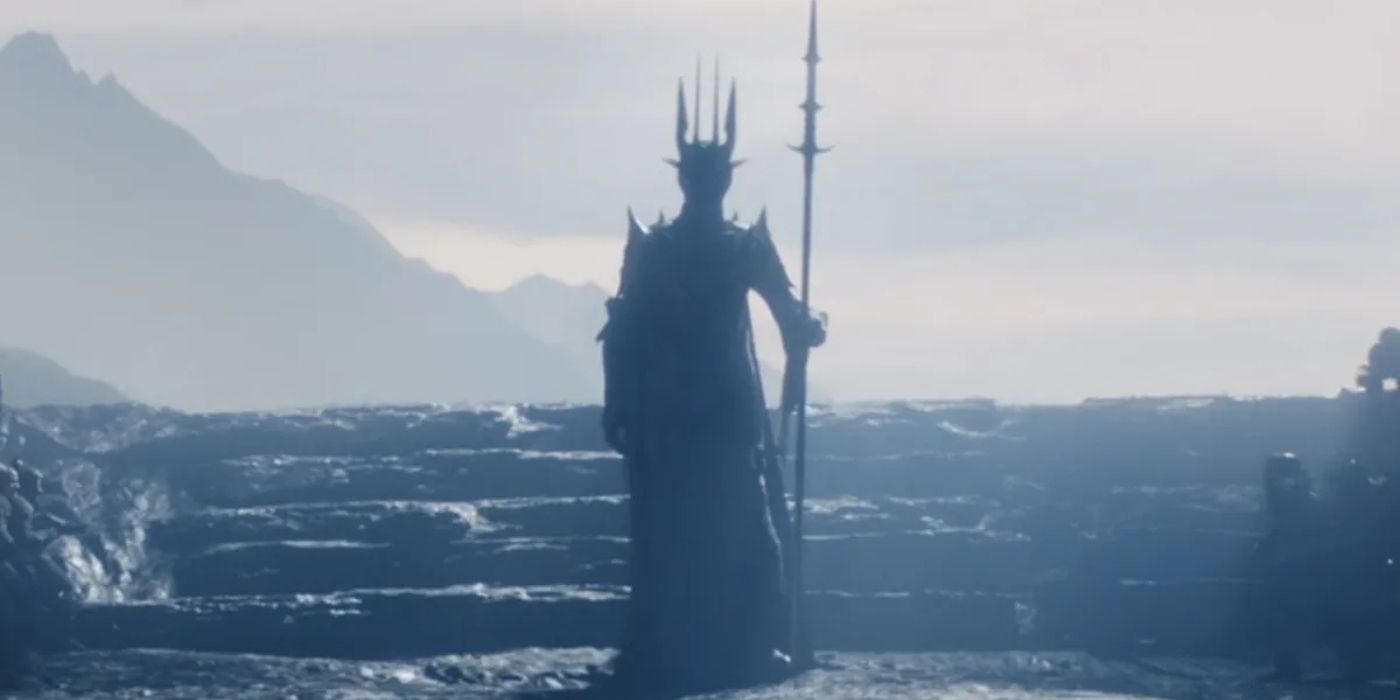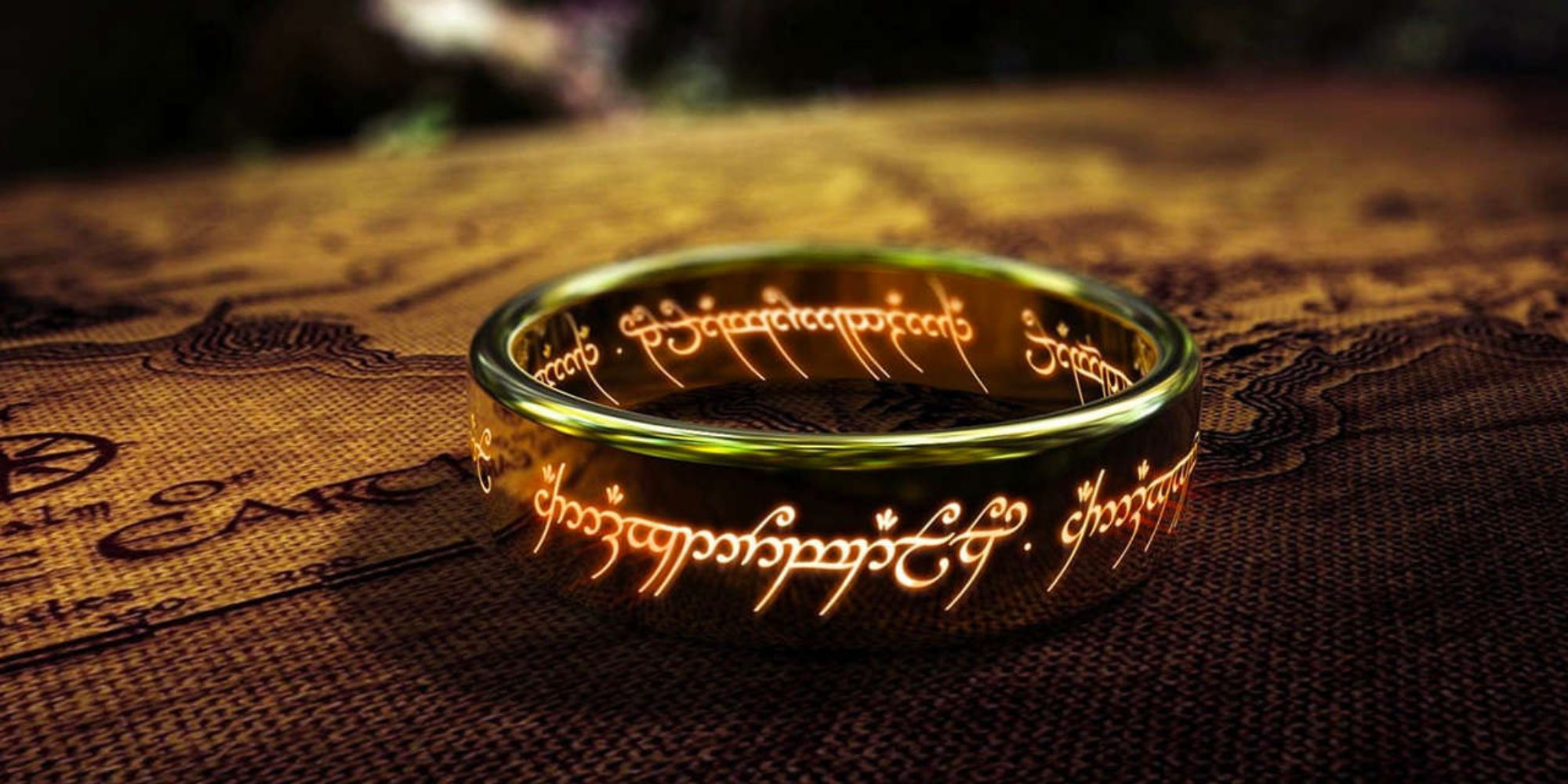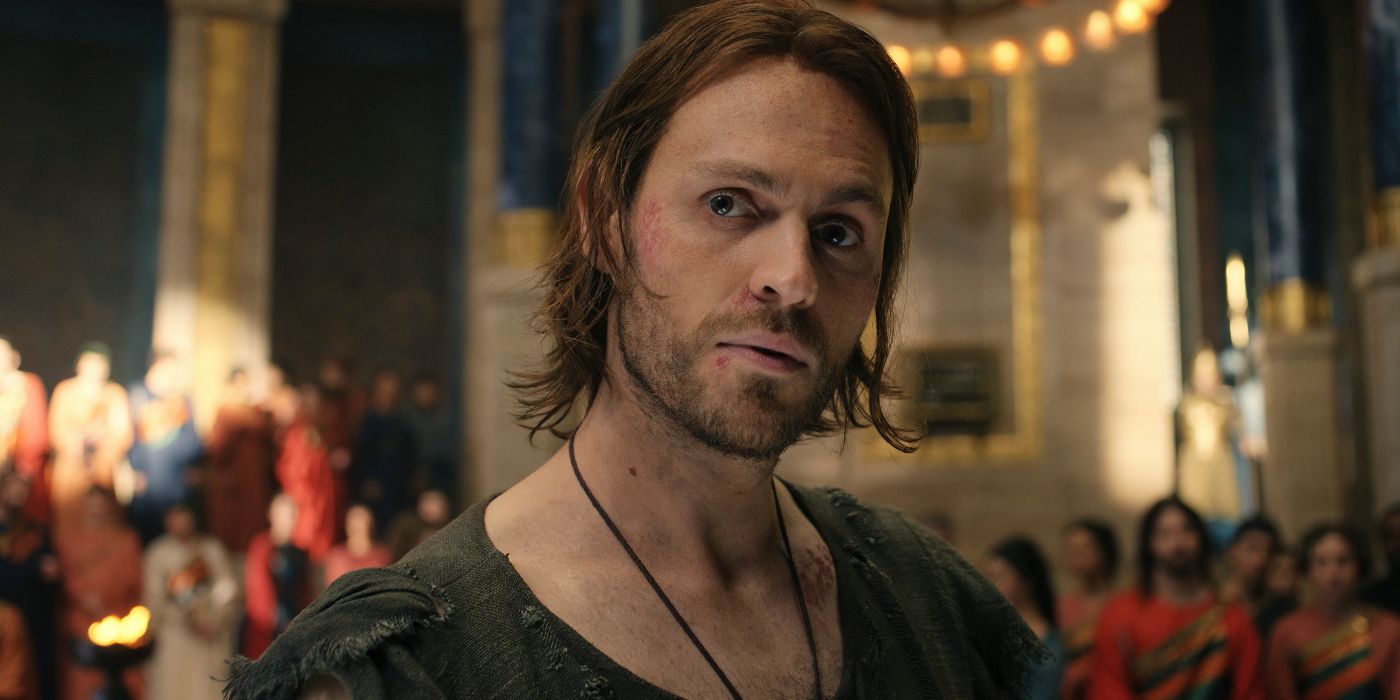Editor's note: The below contains major spoilers for The Rings of Power.The first season of The Lord of the Rings: The Rings of Power is finally at an end, and it caught many viewers by surprise when it finally revealed who Sauron really was. As it turns out, Middle-earth's big bad was hidden in plain sight all along under the identity of Halbrand (Charlie Vickers), the castaway who eventually claimed the role of long-lost king of the Southlands in a seemingly Aragorn-like tale — only, well, he turned out to really be the biggest villain of the story. This reveal was a shock just for us just as much as it was for main characters like Galadriel (Morfydd Clark) and Elrond (Robert Aramayo), and it culminated in the crafting of the Three Elven Rings by Celebrimbor (Charles Edwards) in the season finale, "Alloyed".
What seemed strange to most viewers was how sudden and unexpected it was to see Halbrand, who appeared to be a good and determined person, come out as such an evil being like Sauron. But what seemed like an out-of-nowhere narrative decision does have is actually rooted in J.R.R. Tolkien's writings. While Sauron is indeed one of the evilest entities in Middle-earth history, he wasn't always so, as The Rings of Power's premise states that "nothing is evil in the beginning." In fact, there were moments in the Second Age, after the fall of Morgoth, and even during the War of the Ring (depicted in The Lord of the Rings books and movies) when he showed a little regret regarding his actions.
Nothing Is Evil in the Beginning
No one is born evil, and this is a fact as much in Tolkien's Legendarium as it is in our own world. Even Morgoth wasn't created evil. Initially known as the Valar Melkor, he eventually turned against his creator, Erú Ilúvatar (who is actually "The One" that Sauron mentions during his confrontation with Galadriel in the season finale), due to his intention to create something of his own. His rebellious feeling and nature were initially valid, as it is going against our own parents that most of us find room for growth during adolescence, for example. Does that justify turning evil and leading a series of deadly wars across the world? Definitely not.
With Sauron, it wasn't that different. In "Alloyed," he mentions his admiration for Celebrimbor, claiming that he apprenticed under someone that gave high praise to the Elvensmith's abilities. In fact, the Maiar known initially as Mairon apprenticed under none other than Aulë himself, the Valar who created the race of Dwarves. It was then that he developed his skills for forging and crafting, as well as his passion for order. This, as we know from countless dystopian sci-fi works and from our own world as well, is usually the first step towards the dark road of fascism, and that's precisely how Sauron became a servant of Morgoth.
Did Sauron Ever Regret his Deeds?
After a whole age of fighting, Morgoth was finally defeated when the Host of the Valar joined the fight against him. This tale was even told by Celebrimbor to Elrond, as it is the tale of his father, Eärendil, who went to Valinor to beg for the Valar's intervention in the whole affair. The first Lord of the Dark was then sent to the Void, a gap between dimensions, where he was to wander for eternity.
This is a pretty dim fate for anyone, and Sauron wholeheartedly agreed. So much so, during the Second Age he even showed repentance for his actions as Morgoth's lieutenant. In The Silmarillion, Tolkien tells us about this brief period, in which Sauron was regretful of his servitude precisely for knowing the fate of Morgoth and wanting to avoid it for himself. He served Eönwë, a herald of Manwë, the chief of the Valar, but eventually refused the call to Valinor to be judged and punished. His plan then changed, as he now intended to heal Middle-earth by staying there and acting for this purpose.
This is also perfectly aligned with what Adar (Joseph Mawle) tells Galadriel in the sixth episode of The Rings of Power, "Udûn." During their confrontation, the Urûk tells the Elf commander that he killed Sauron when his children - the Orcs - started being used to access the powers of the Unseen World in order to start this "healing." This fits well into the narrative of a repentant Sauron and is the show's version of his attempt to atone for his actions. No Valar were ever mentioned, but they also didn't need to be for the message to come across.
What About the One Ring?
As it turns out, even after forging the One Ring, Sauron was still capable of feeling fear and regret. Actually, even during the War of the Ring and at the height of his power. In Return of the King, Tolkien writes that the Dark Lord trembled in fear when Frodo Baggins (Elijah Wood) put the One Ring on when fighting Gollum (Andy Serkis). In the movie, Peter Jackson tried to portray this as the Eye of Sauron quickly widening and immediately shifting its focus from the Black Gate to the entrance to Mount Doom — although not as efficiently as Tolkien did, perhaps.
In that brief moment, Sauron regretted ever forging the One Ring, for he now understood the possibility of him losing again was real. He had grossly miscalculated his steps, as, in his mind, Aragorn (Viggo Mortensen) was supposedly the person who bore the One Ring. To Sauron, it made perfect sense that Isildur's heir would have the Ring and try to use it against him. That's why he focused on the battle at the Black Gates, because he was sure that was where the Ring was.
Was He Really Evil in 'The Rings of Power'?
This is perhaps the issue that brought about the most confusion after Halbrand's coming out as Sauron. Does that mean Sauron was, well, good during those first episodes? Or did he actually plan for all that to happen? While his relapse happened gradually in Tolkien's writings, in The Rings of Power he got the push he needed from Galadriel, who was oblivious as to who she was really dealing with. She really did believe in the good of his intentions, and he started believing this, too, after agreeing to take part in the quest to reclaim the Southlands and act as their king. At first, he refused this idea precisely for knowing there was the very real possibility of it not ending well for him, preferring to lie low in Númenor. But it was also an opportunity to continue his idea of healing Middle-earth (combined with a little of his ever-present lust for power, one would guess).
His relapse in the series actually happened when he was discovered by Galadriel in the season finale. There was no point in trying to hide who he was anymore, so he tried to win her over, which, as we all know by now, didn't happen. So Season 1 of The Rings of Power works basically as an origin story for Sauron. Instead of just seeing the villain being bad just because of a predefined conception of who he was, we saw him actually trying to be good for once, then embracing his evil nature.
The first season of The Lord of the Rings: The Rings of Power is available to stream exclusively on Prime Video.





